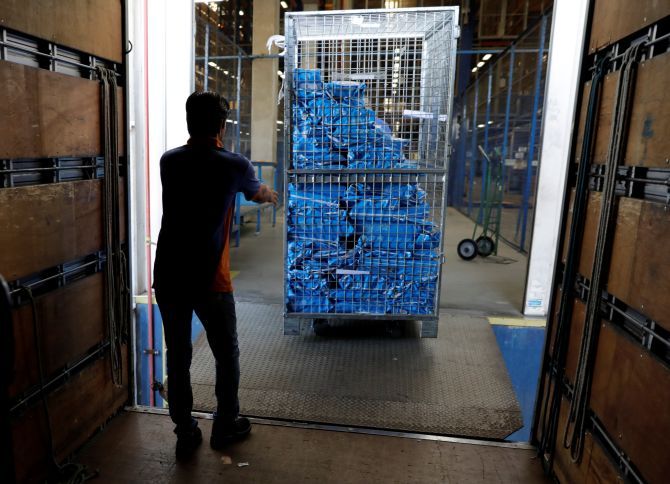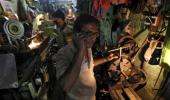The companies have asked for digital curfew passes as e-retailers feel if more lockdowns are ordered after April 14, it is extremely difficult and time-consuming process to acquire the passes from local authorities.

E-commerce companies such as Amazon, Flipkart, Bigbasket, Grofers and the sellers are in talks with the government to help them provide curfew passes and approval of the list of the essential items, including IT products, during the lockdown period, sources said.
The time period of 4-6 months would give enough visibility and time for the sellers to keep stock ready, as these firms and sellers were of the view that the curfew passes provided to them would expire once the lockdown is lifted (after April 14).
The companies have asked for digital curfew passes as e-retailers feel if more lockdowns are ordered after April 14, it is extremely difficult and time-consuming process to acquire the passes from local authorities.
“All these passes and approvals that they are giving are valid until April 14. So, if the lockdown is extended by two more weeks, then again you have to run to collect the passes,” said an executive at an e-commerce company.
“We don’t know if it is staggered unlocking or it is going to be a continued lockdown until June-July to flatten the pandemic curve.”
As many delivery personnel have gone back to their hometowns, e-commerce firms are struggling to get enough of inter-district curfew passes. Instead of going from one district to another, the retailers have also asked the government to enable each state to provide the passes.
“If my delivery associate is getting a pass for South Delhi, he can’t do delivery in North Delhi,” said a person. “If the fulfilment centre is located in North Delhi, the associate could be living in South Delhi. Then he has to go all the way from his home to the fulfilment centre to pick up the stuff for delivery. Many delivery associates have been stopped by the police, saying that they don’t have valid passes.”
According to industry insiders, more than groceries, the biggest challenge for consumers is to get various important electronic items such as phones, computers and other accessories. This is because an increasing most people are working from home.
According to community platform LocalCircles, most corporates have asked their employees to work from home.
As many people were unprepared for such a long lockdown, they are running out of items like printer cartridge and many don’t have a laptop, hence, unable to work from home. Also, with online tutorials starting, parents are struggling to find computers for their children. Most of these items have still not been considered essential.
About 43 per cent of parents said they did not have the requisite computer hardware needed for their children to participate in online classes, according to LocalCircles.
"The government as well as e-commerce firms have been flooded with requests for laptops, mobile phone and Wi-Fi routers, but there are different definitions for 'what is essential and what is not' in various states and there is a need for some direction to include these items as part of the essential product list," said a person.
Experts said that in China, the government considered e-commerce companies such as Alibaba, JD.com and Walmart as vital players providing essential items to the people during the coronavirus pandemic. They said it created a huge impact in terms of countering the disease effectively.












 © 2025
© 2025